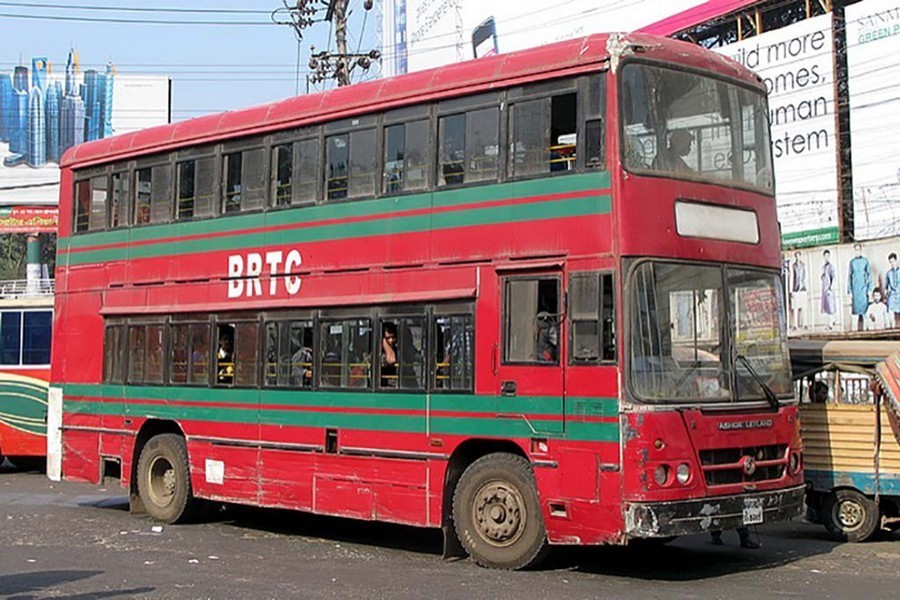
Published :
Updated :

The Bangladesh Road Transport Corporation (BRTC) abhors old buses. Instead of spending time and money on their maintenance and repair, the state road transporter is more interested in importing new ones.
A visit to its bus depots in different areas of the city would make it clear how the agency despises old vehicles in its fleet. The corporation almost regularly dumps inoperable and worn-out buses in the depots.
Allegations have it that the BRTC buses become unfit for plying well ahead of their usual lifespan because of poor maintenance and repair. When a privately owned bus remains in service for 12 to 15 years, the average lifespan of BRTC buses is half of that. In some cases, it is even less.
A recent media report said that the BRTC has disposed of 49 out of 50 Volvo double-deckers, bought in 2001 with Swedish financial assistance. Each of those comfortable buses had cost the government Tk 12 million. City commuters had appreciated the addition of the buses to the BRTC fleet.
But due to lack of proper maintenance and repair, the Volvo buses started giving trouble after six to seven years. The BRTC authorities kept a few operational for some time using the parts and accessories of the discarded Volvo buses. Barring one, all Volvo buses became inoperable long ago. The one that has been kept alive is now transporting the Supreme Court staff.
The situation has been far worse in the case of a few hundred buses imported from China. The quality of the buses was so poor that most of those had to be dumped within three to four years after their induction into the fleet. Here too, the poor maintenance is an issue. The fate of articulated buses imported from India remains the same. The Ashok-Leyland double-deckers, imported from India from time to time, have been dominating the BRTC fleet. The state of maintenance of these buses is not anyway better.
Critics say an unscrupulous section of officials at the transport ministry and the BRTC are more interested in procuring new buses than maintaining the existing ones since they fatten their purses at the first instance. Proper maintenance would deprive them of making a few extra bucks from the import of new vehicles.
Why blame the BRTC? This is happening everywhere.
'More you procure, more you earn extra', remains the motto in certain areas of the administration. The scale of such irregularities might have fluctuated from one regime to another. But the vice has always been there.
Besides financial irregularities, the provision of leasing out the buses by the BRTC to the private parties remains one of the key reasons behind the premature demise of its vehicles. Though the job of maintenance lies with the BRTC itself, the private parties bother least about keeping the buses road-worthy. The BRTC staff members are equally negligent of the maintenance work.
The BRTC has utterly failed to provide genuine and efficient support to the commuters, notwithstanding the government's substantial investment in it over the years. Most of the taxpayers' money has gone down the drain. In many countries, state transport agencies provide excellent service side by side with the private operators. Unfortunately, the government has never felt the need to ensure a good job on the part of the BRTC. There is a serious lack of accountability. When the government has been paying a huge amount of money to the BRTC for bus procurement, from time to time, is it too much for the commuters to expect better service from the corporation?
zahidmar10@gmail.com


 For all latest news, follow The Financial Express Google News channel.
For all latest news, follow The Financial Express Google News channel.